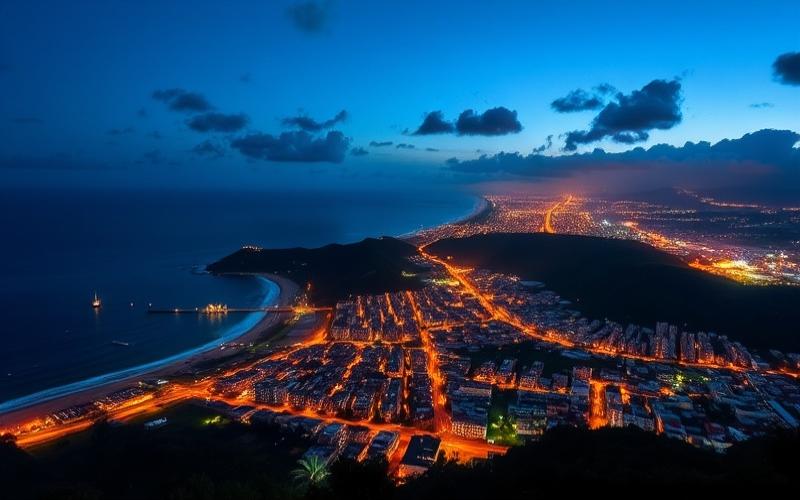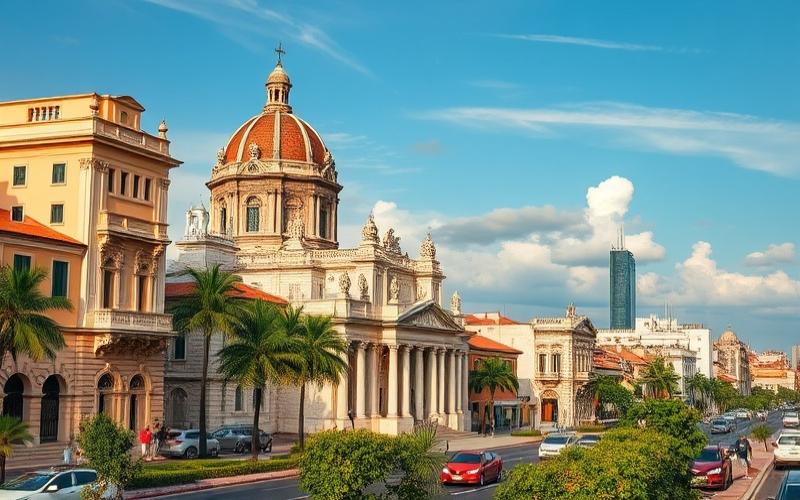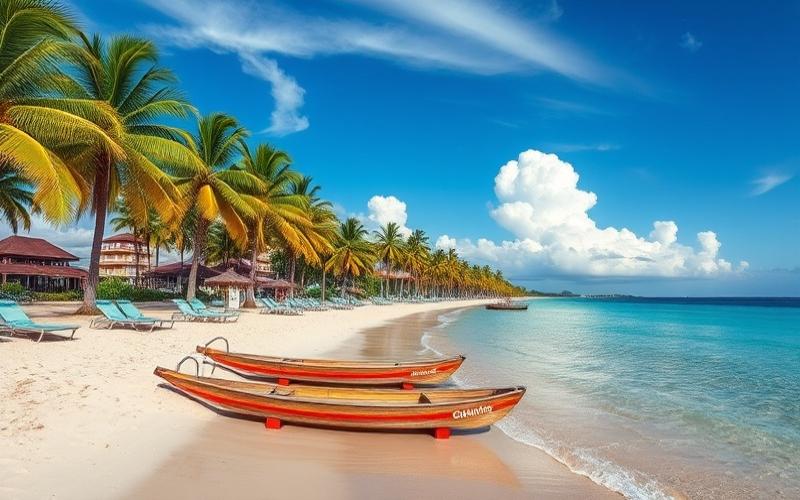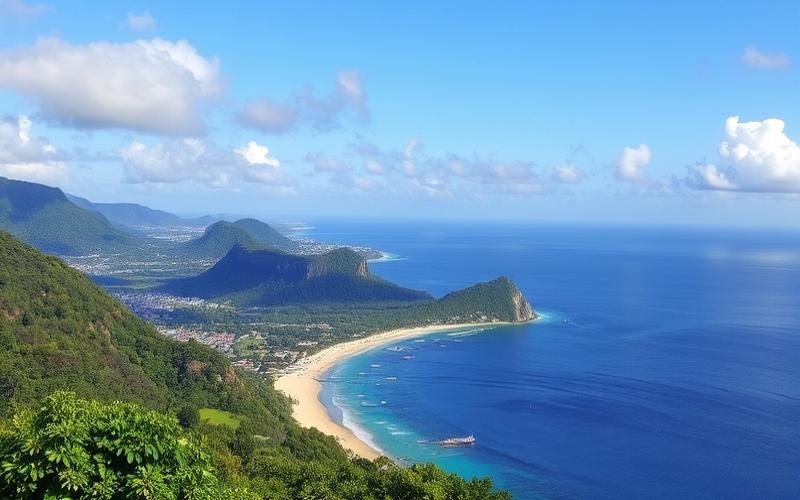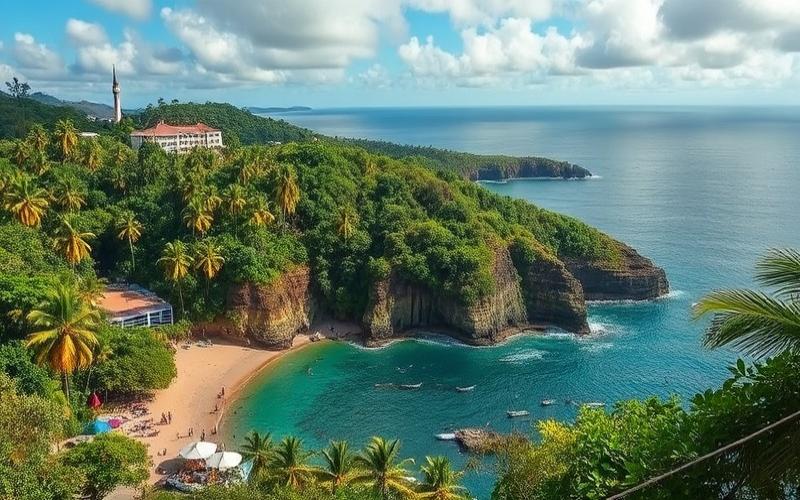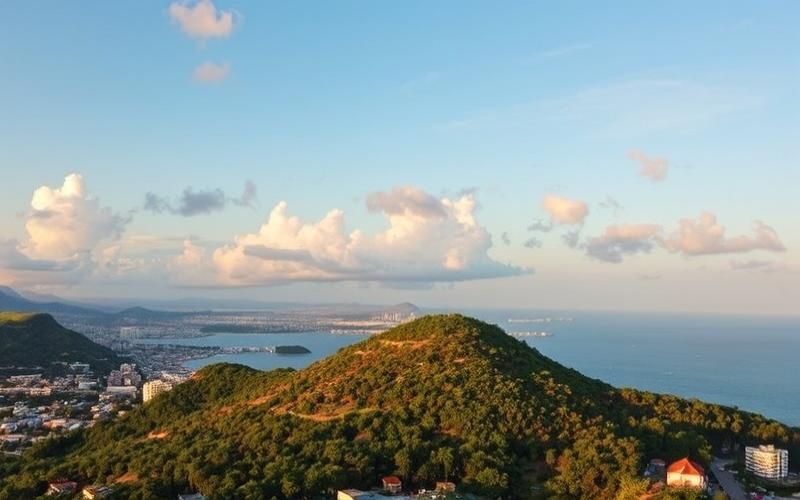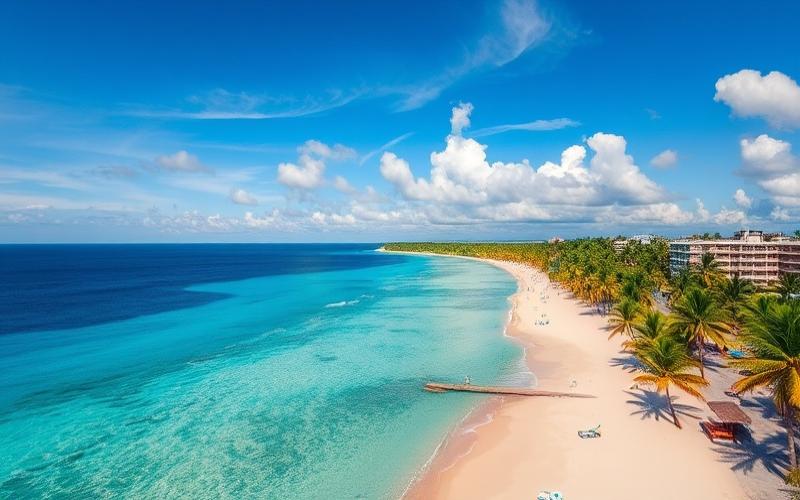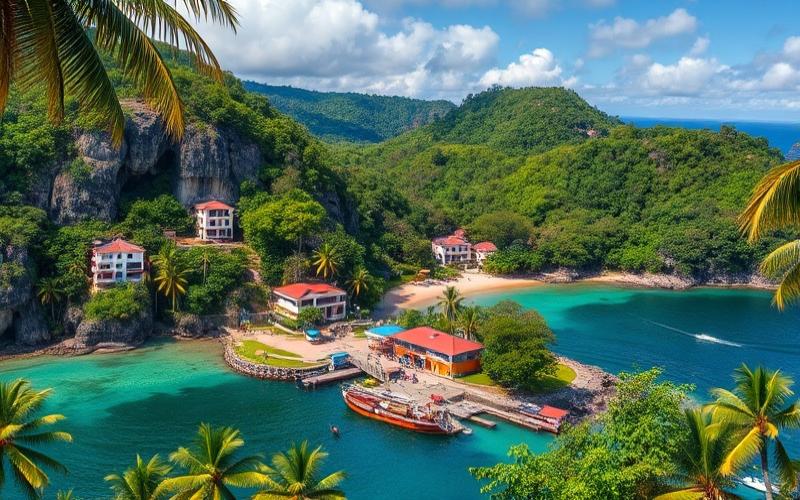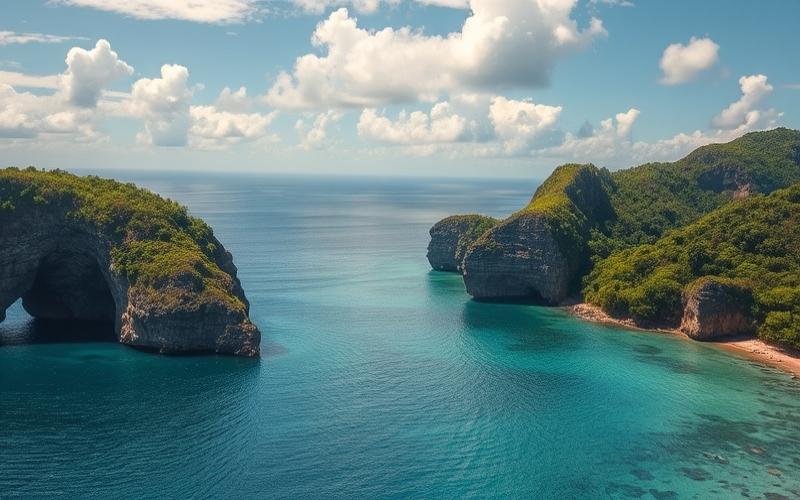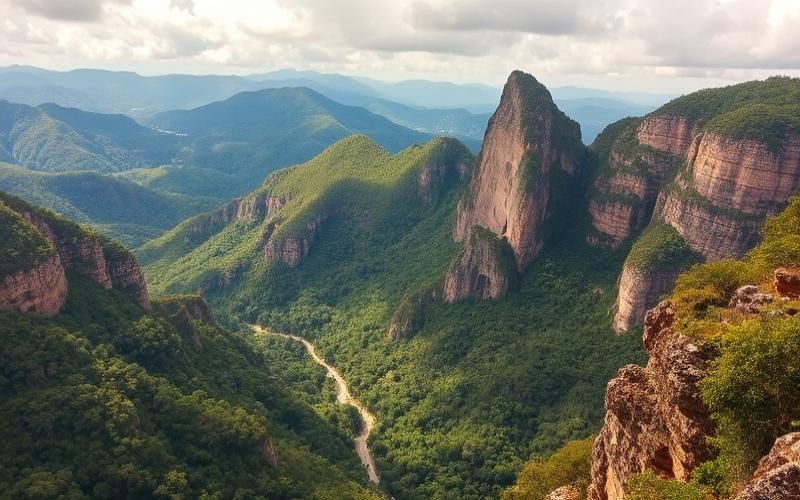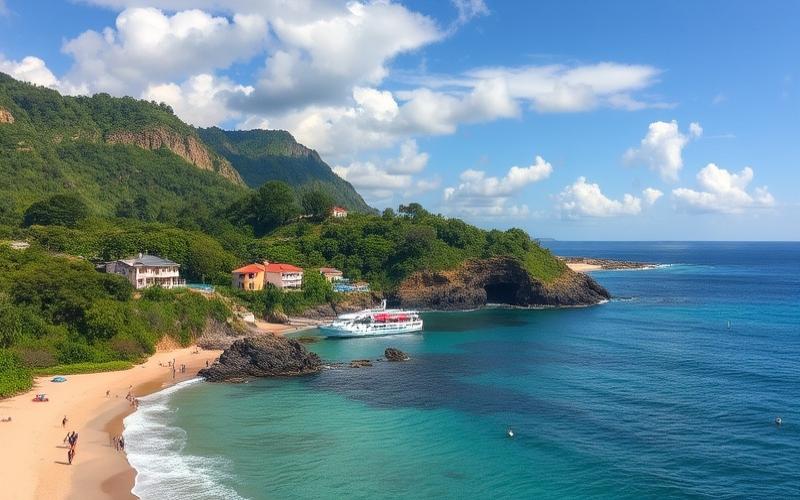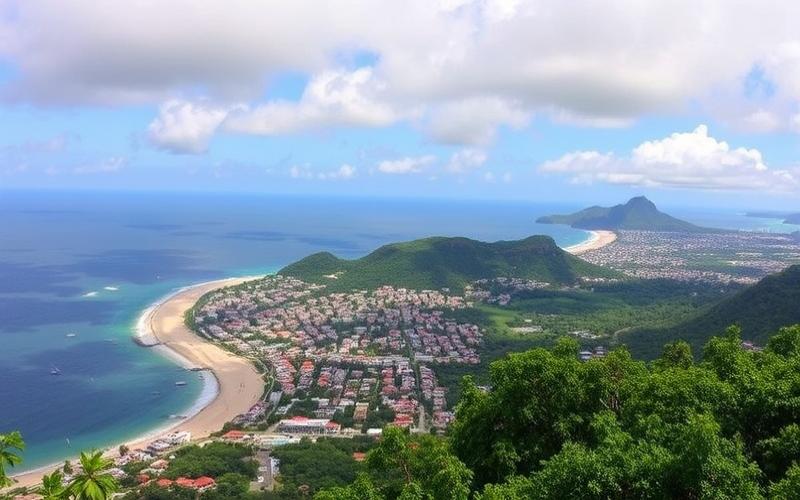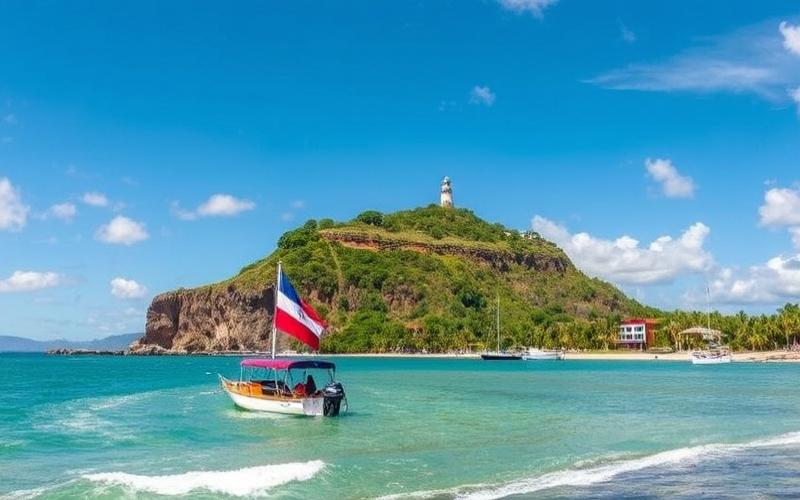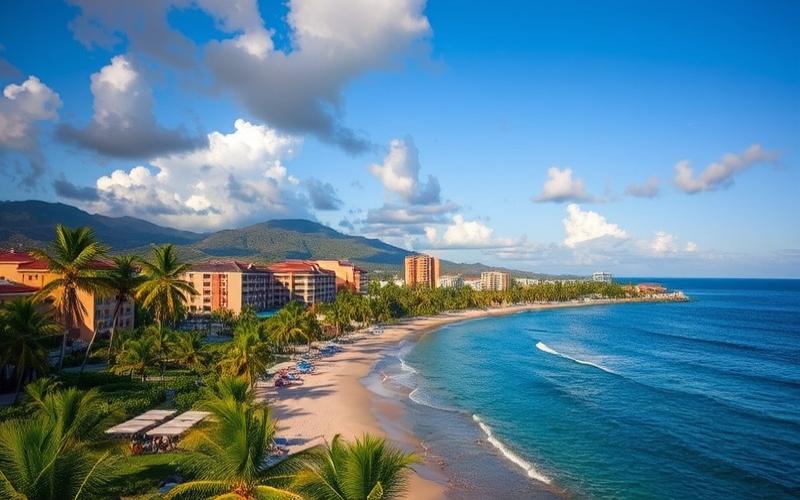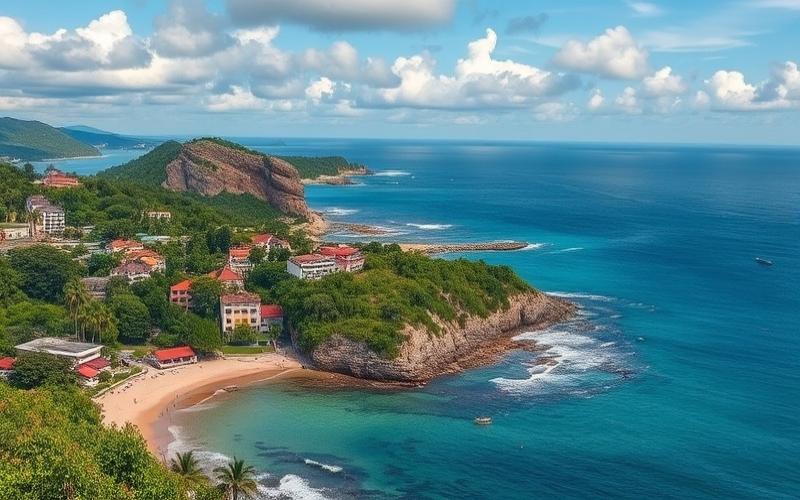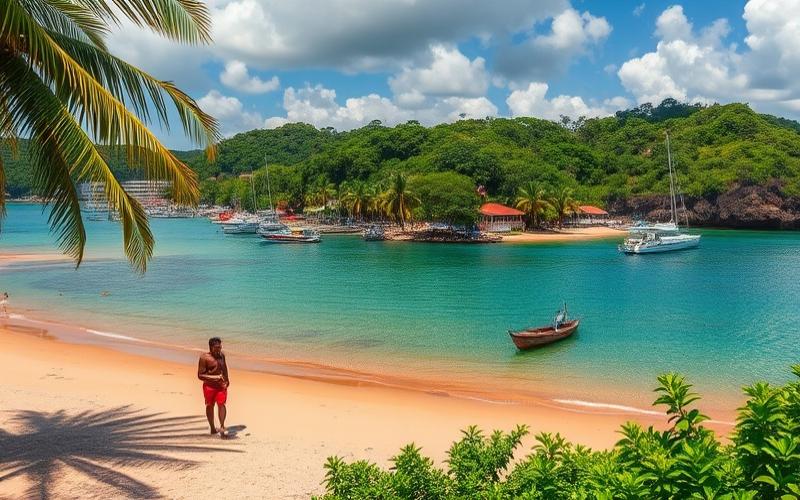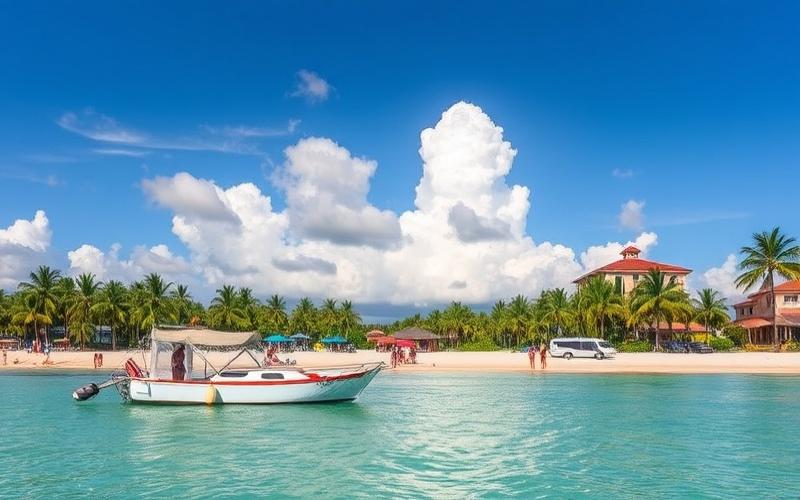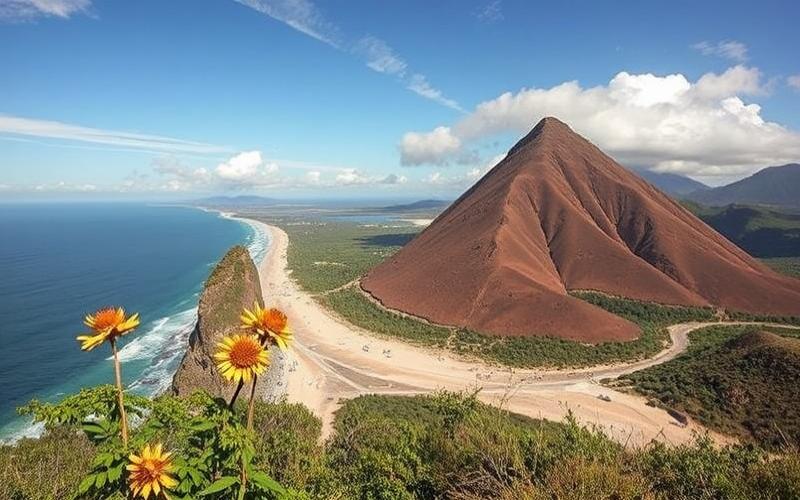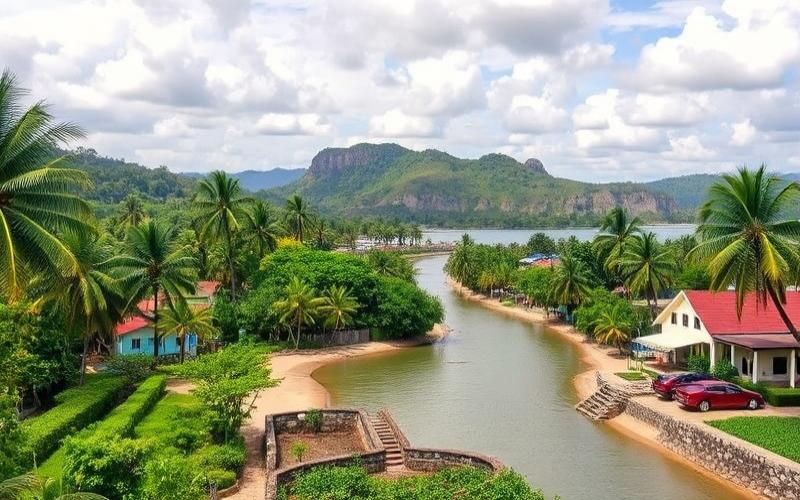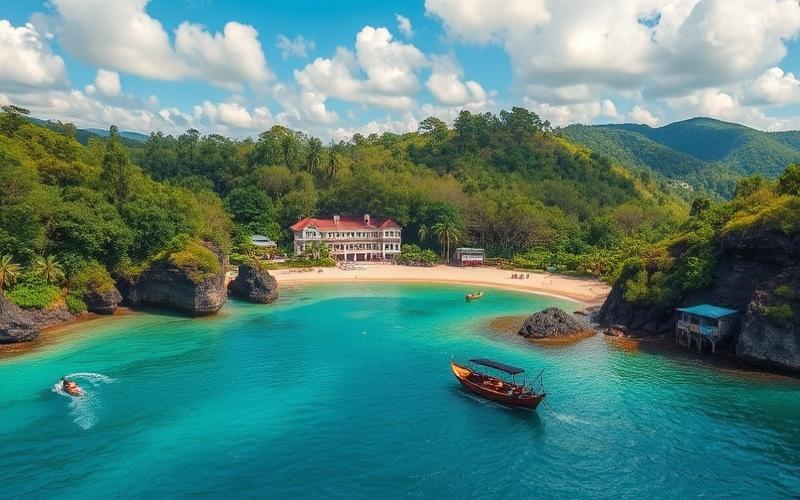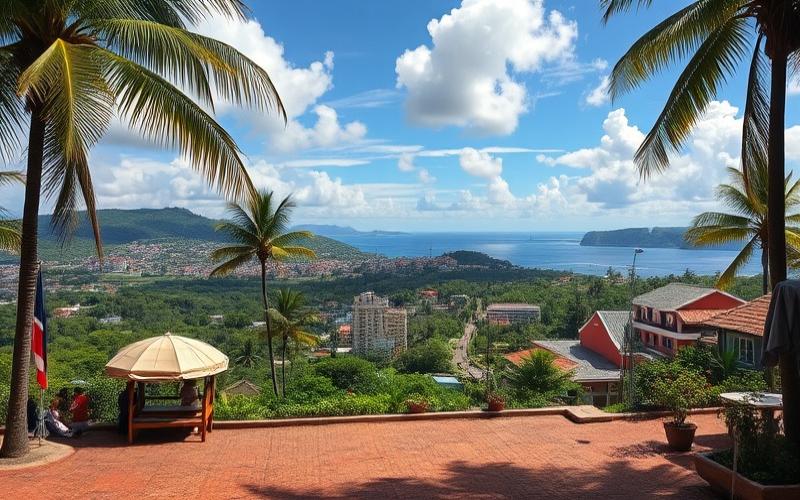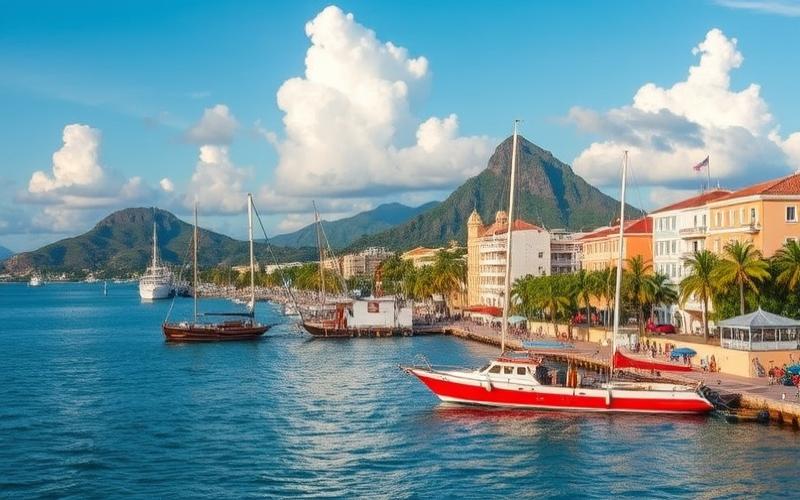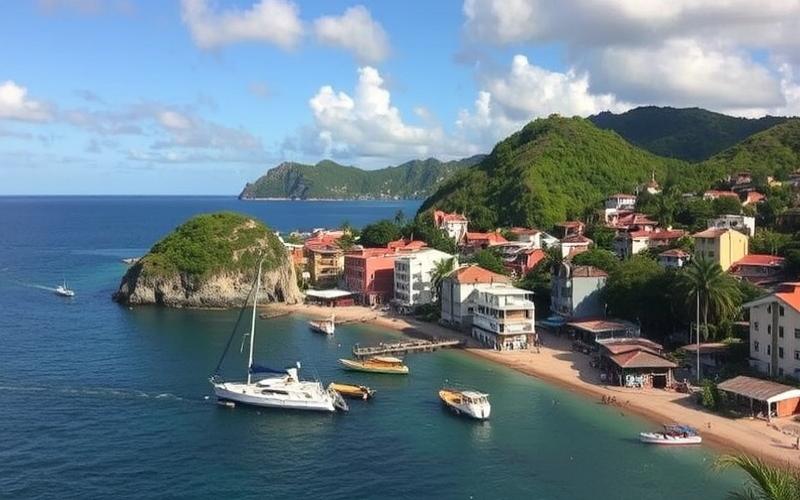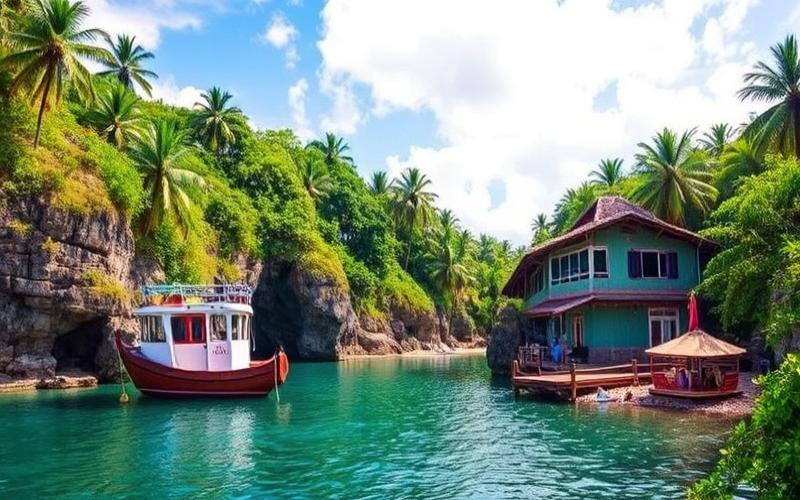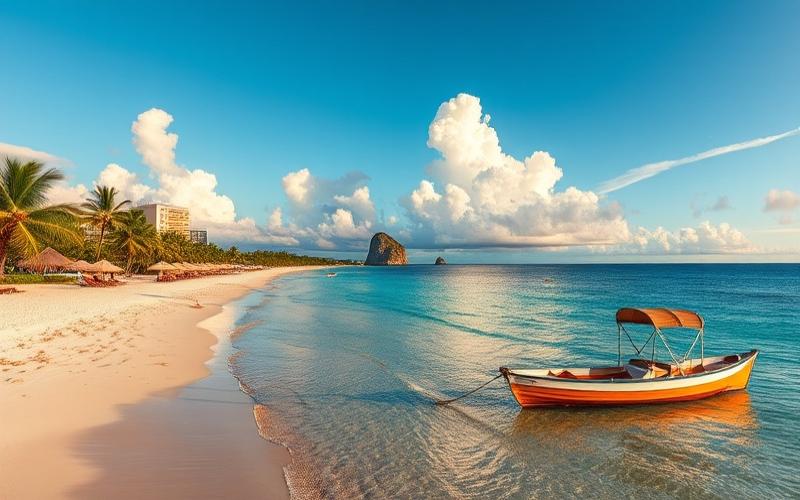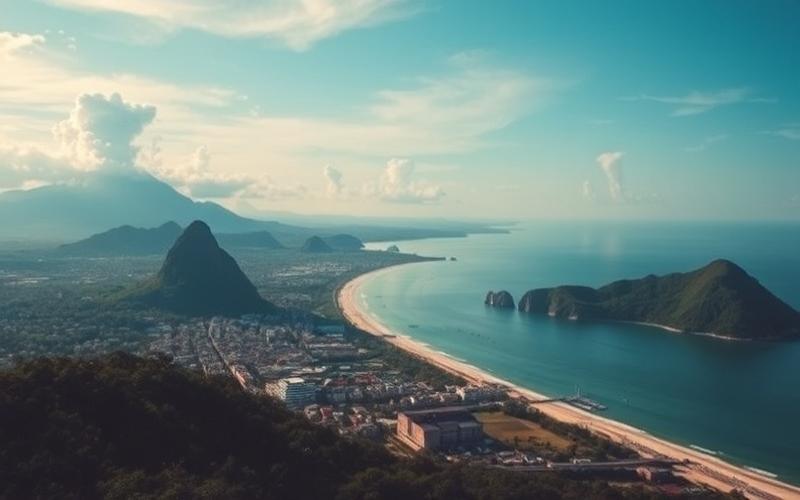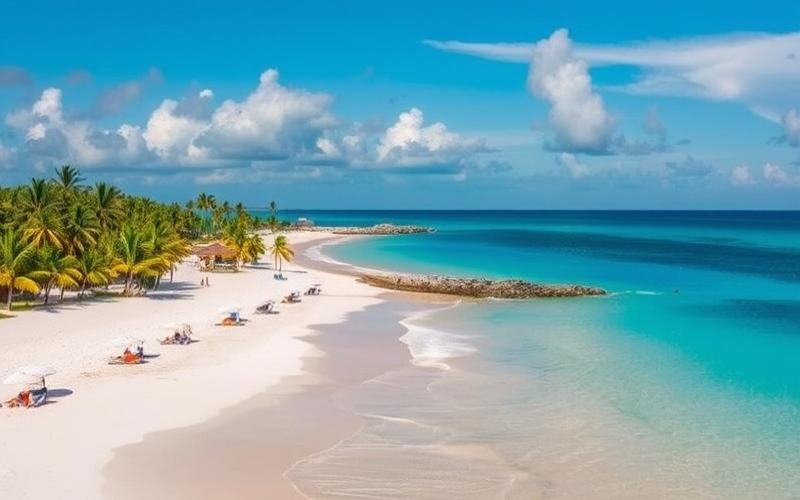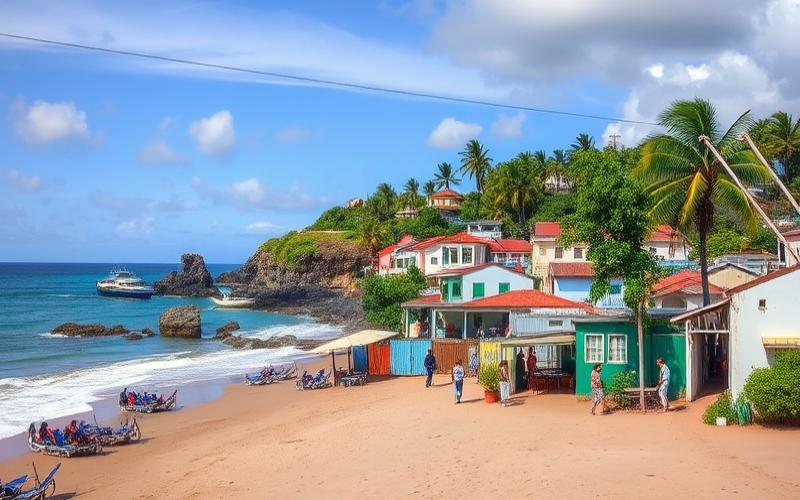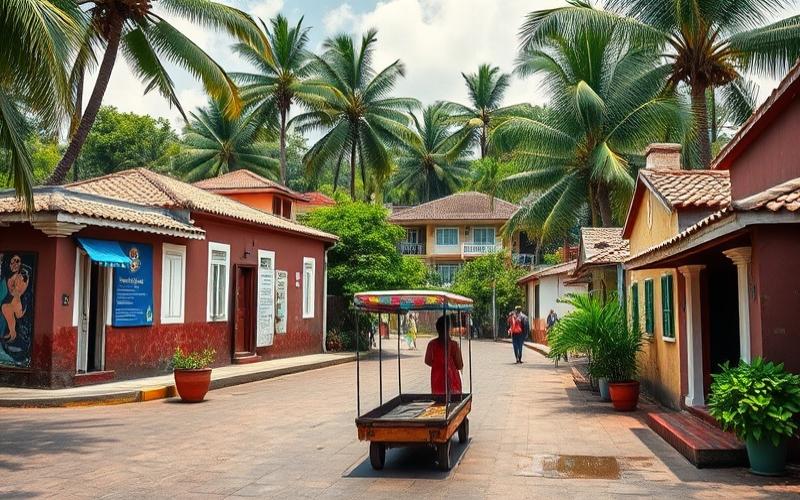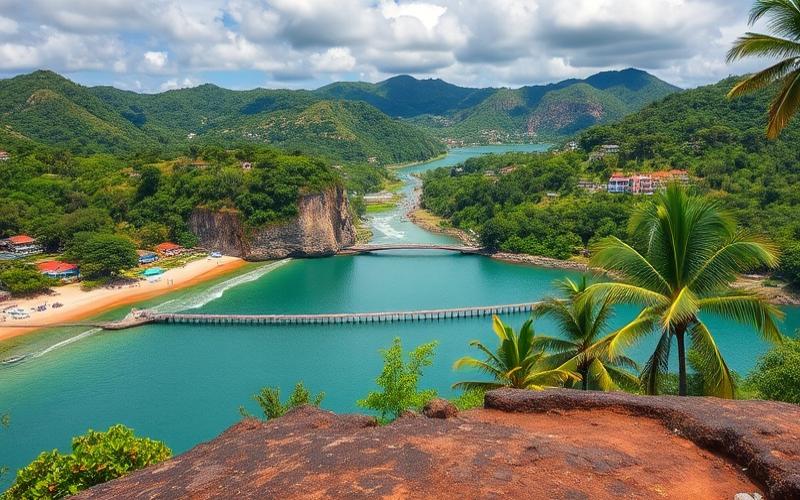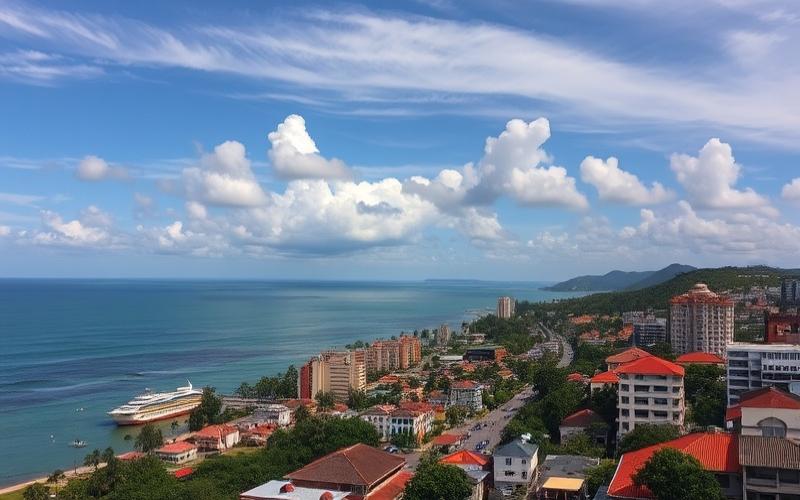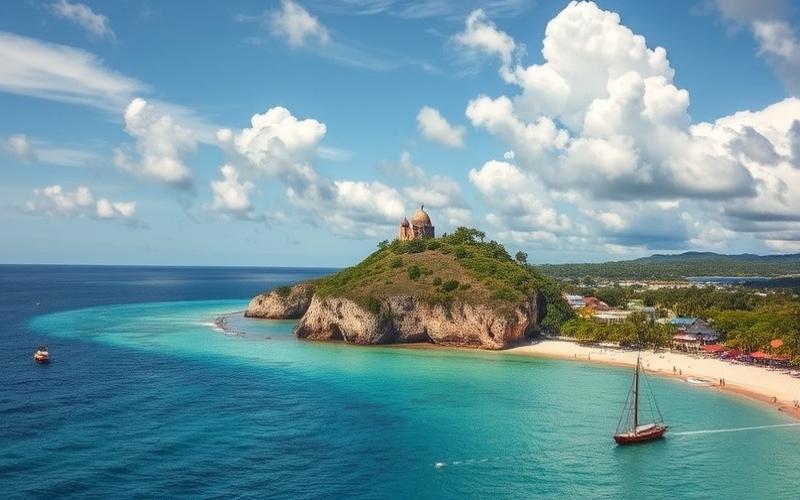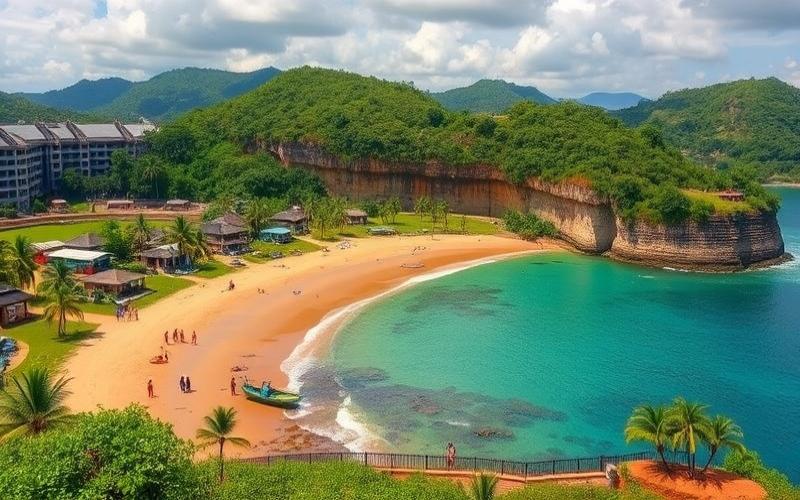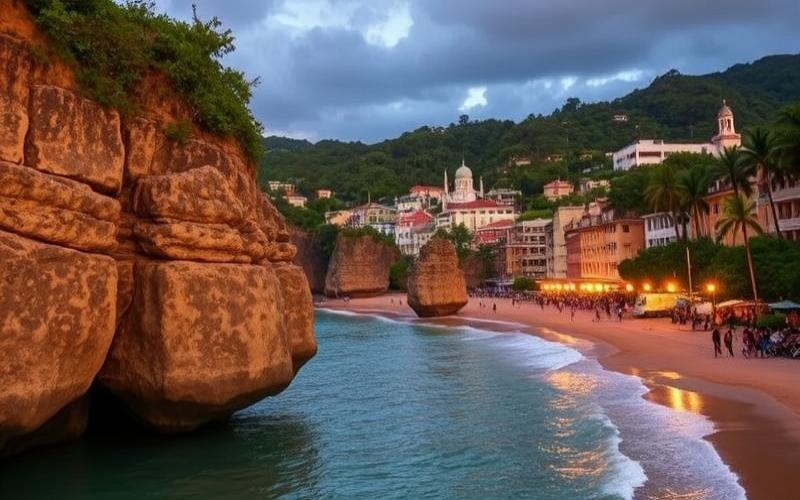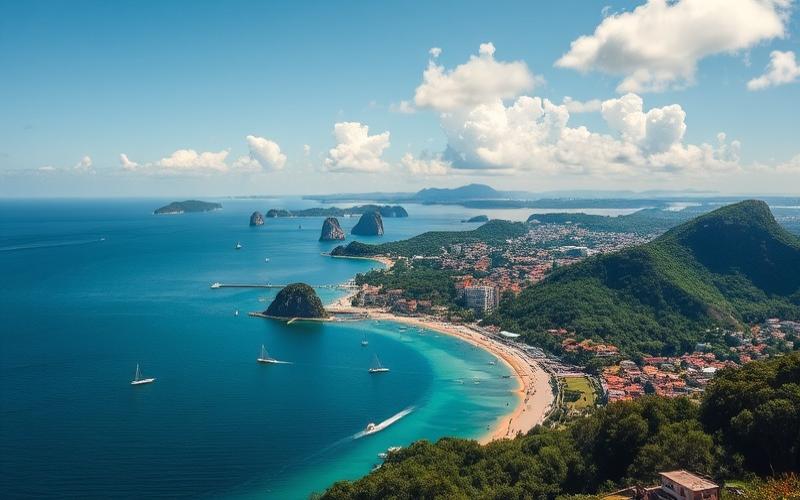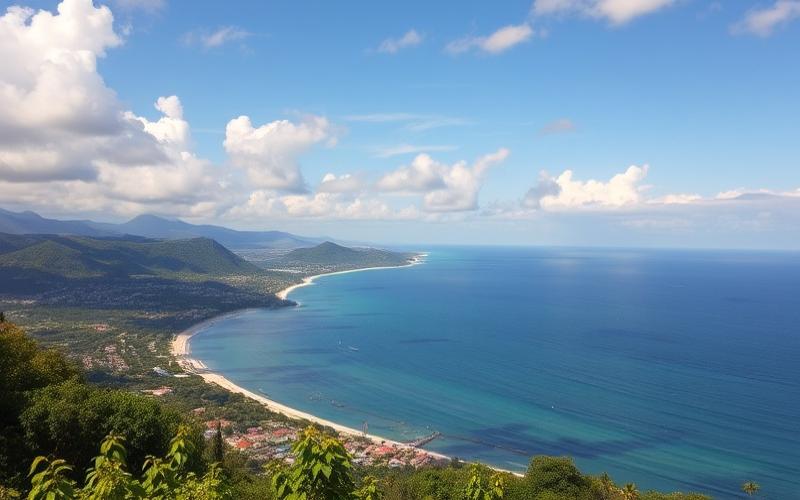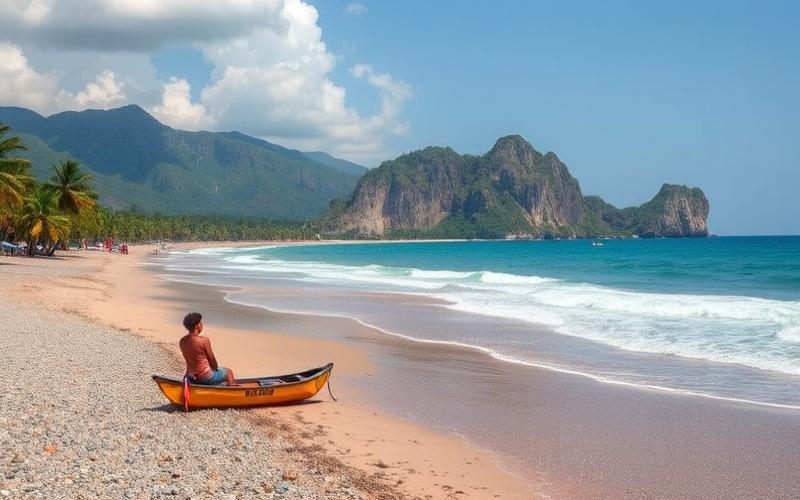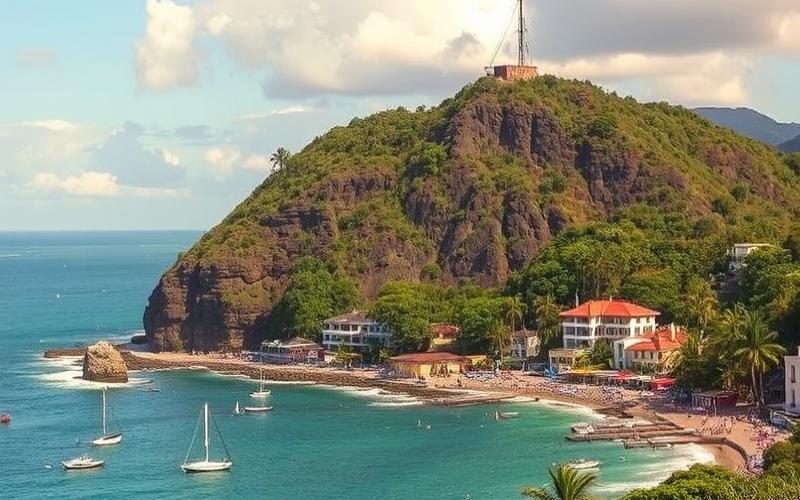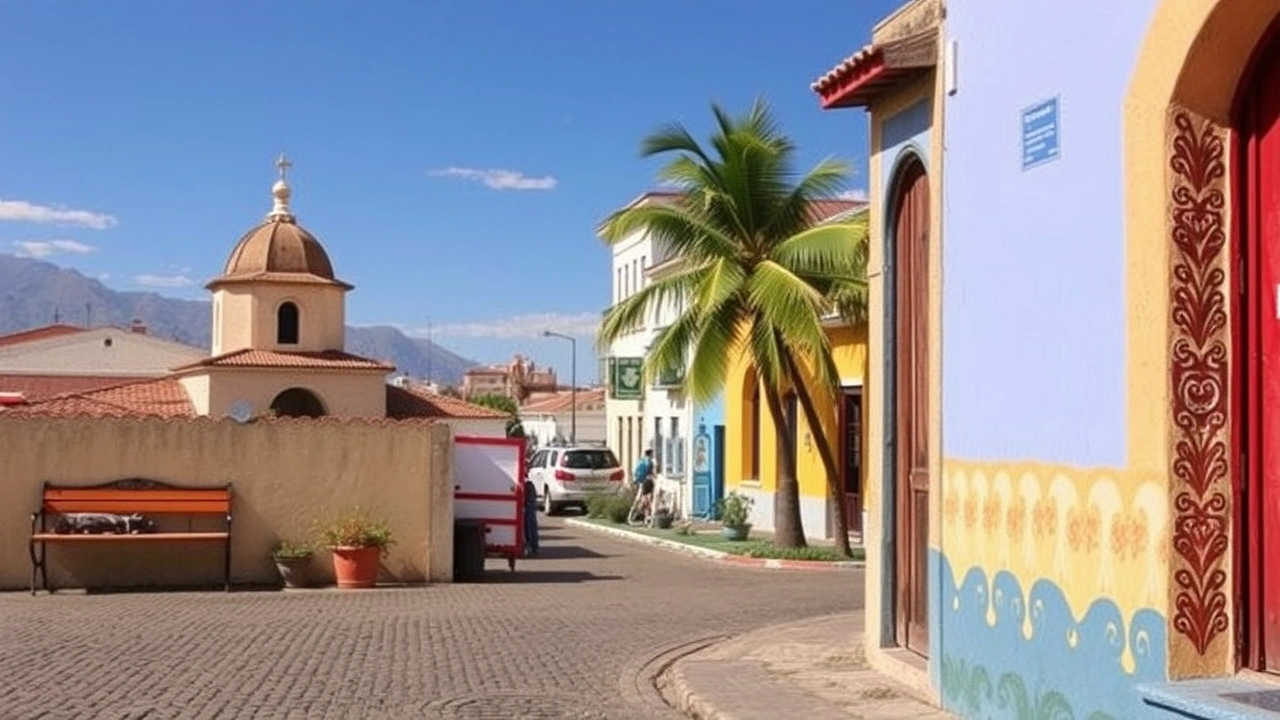
 Published on and written by Cyril Jarnias
Published on and written by Cyril Jarnias
The Dominican Republic, with its white sand beaches, tropical climate, and rapidly growing economy, is attracting more and more foreign investors to its real estate sector. Whether you’re looking for a vacation home in the sun or a lucrative investment opportunity, this guide will detail the property purchasing process for foreigners in this Caribbean paradise.
A Real Estate Market Open to International Investors
Good news for foreign buyers: the Dominican Republic offers a legal framework favorable to international real estate investment. Indeed, foreigners enjoy the same rights as Dominican citizens regarding property purchase and ownership. This open policy has helped energize the country’s real estate market in recent years.
Key points to remember:
- Foreigners can purchase real estate in their own name
- There are no restrictions on the type or size of properties foreigners can acquire
- Non-residents can obtain mortgages from local banks (under certain conditions)
- The government offers tax incentives for certain types of real estate investments
This openness of the Dominican real estate market to foreign investors is part of the country’s broader effort to stimulate its economy and attract international capital. However, as with any foreign investment, it’s crucial to understand local specifics and work with competent professionals to successfully complete your project.
Good to know:
Although the market is open to foreigners, it’s highly recommended to hire a local attorney specialized in real estate law to secure your transaction and guide you through administrative procedures.
Key Steps in the Purchase Process
Acquiring property in the Dominican Republic follows a relatively simple process, but with some particularities to be aware of. Here are the main steps to follow:
1. Property Search and Selection Work with a licensed real estate agent to assist in your search. They can guide you to the best opportunities based on your criteria and budget.
2. Title Verification Before any transaction, it’s crucial to verify the validity of the property title with the Property Registry. This step ensures there are no disputes or mortgages on the property.
3. Reservation Contract Signing Once the property is chosen, you’ll typically sign a reservation contract along with a deposit (usually between 10% and 30% of the sale price).
4. Due Diligence Your attorney will conduct a thorough verification of all legal and tax aspects related to the property.
5. Sales Contract Signing If everything is in order, you’ll sign the final sales contract before a Dominican notary.
6. Payment and Property Transfer The balance payment is typically made via bank transfer. Once payment is completed, the notary will register the property transfer with the relevant authorities.
7. Obtaining the Property Title After registration, you’ll receive your official property title, usually within 2 to 3 months.
Good to know:
The purchase process typically takes between 30 and 90 days on average, depending on the transaction’s complexity and the efficiency of the parties involved.
Legal and Tax Framework: What You Need to Know
Understanding the legal and tax framework is essential for any foreign investor looking to purchase property in the Dominican Republic. Here are the main points to know:
Legal Framework:
- Law 171-07 on special incentives for foreign retirees and pensioners offers tax benefits to foreigners who settle in the country
- Law 158-01 on tourism development promotion provides tax exemptions for certain real estate projects in tourist areas
- The Dominican Civil Code governs general aspects of real estate transactions
Taxation:
- Transfer tax: 3% of the property value (paid by the buyer)
- Capital gains tax: 27% on profit from resale (exemptions are possible under certain conditions)
- Annual property tax: 1% of property value for properties valued over 7.7 million Dominican pesos (approximately $133,000)
- Rental income tax: 27% on rental income (deductions are possible)
It’s important to note that the Dominican Republic has signed tax treaties with several countries to avoid double taxation. Consult with a tax advisor to understand the specific implications for your situation.
Good to know:
Non-residents can benefit from property tax exemption for the first 10 years for newly constructed properties in certain tourist areas.
Essential Documents: Prepare Your File
To successfully complete your property purchase project in the Dominican Republic, you’ll need to gather several documents. Here’s a list of the main required documents:
For the foreign buyer:
- Valid passport
- Dominican tax identification number (obtained from the General Directorate of Internal Taxes)
- Proof of address in your home country
- Bank statements from the last 3 months (to prove fund source)
- Birth certificate (translated into Spanish and apostilled)
For the property:
- Current property title
- Non-opposition certificate (issued by the Property Registry)
- Property registration certificate
- Zoning certificate (to verify permitted land use)
- Receipts for paid property taxes
For the transaction:
- Sales contract (drafted in Spanish)
- Power of attorney (if you cannot be present for signing)
- Proof of transfer tax payment
It’s highly recommended to have all your personal documents translated into Spanish by a certified translator. Additionally, some foreign documents will need to be apostilled to be recognized in the Dominican Republic.
Good to know:
Establishing a Dominican company to purchase property can offer certain tax benefits and facilitate investment management. Consult a local attorney to evaluate this option.
Pitfalls to Avoid and Expert Advice
Investing in foreign real estate always carries certain risks. Here are some common pitfalls to avoid and expert advice to secure your investment in the Dominican Republic:
Pitfalls to avoid:
- Never purchase a property without verifying the title
- Be wary of deals that seem too good to be true, especially in popular tourist areas
- Don’t underestimate the importance of a well-drafted sales contract in Spanish
- Avoid buying land in protected areas or areas with environmental risks
Expert advice:
- Hire a local attorney specialized in real estate law from the beginning of your project
- Visit the property multiple times at different times of day before purchasing
- Research development projects in the area (they can affect your property’s future value)
- Consider establishing a Dominican company to hold your real estate
- Ensure you fully understand all tax implications of your investment, both in your home country and the Dominican Republic
Good to know:
The Dominican Republic offers a residency program for real estate investors. A minimum investment of $200,000 USD can qualify you for a residence permit, opening the path to potential citizenship after 2 years.
Real estate investment in the Dominican Republic offers excellent opportunities for foreigners, thanks to a favorable legal framework and a growing market. However, as with any foreign investment, it’s crucial to research thoroughly and work with competent professionals to successfully complete your project.
By following the advice and detailed steps in this article, you’ll be well prepared to embark on your Dominican real estate adventure. Remember that each investment has its own specificities, and the key to success lies in good preparation and quality support.
Disclaimer: The information provided on this website is for informational purposes only and does not constitute financial, legal, or professional advice. We encourage you to consult qualified experts before making any investment, real estate, or expatriation decisions. Although we strive to maintain up-to-date and accurate information, we do not guarantee the completeness, accuracy, or timeliness of the proposed content. As investment and expatriation involve risks, we disclaim any liability for potential losses or damages arising from the use of this site. Your use of this site confirms your acceptance of these terms and your understanding of the associated risks.

